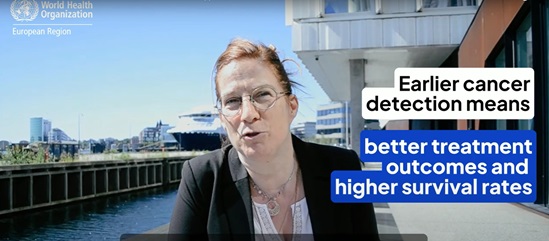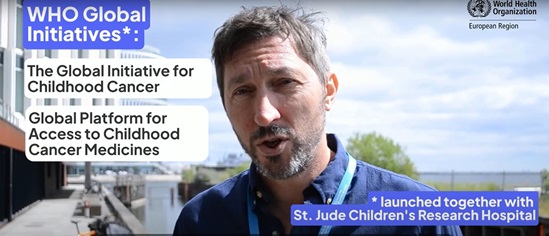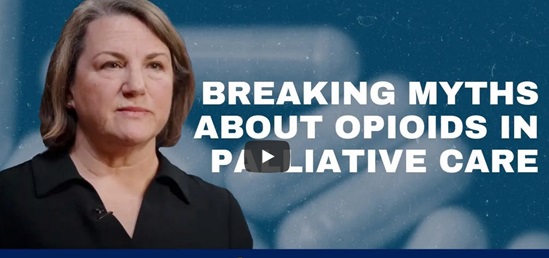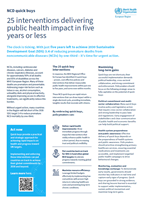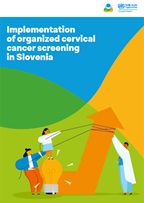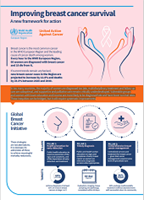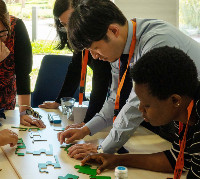The WHO Regional Office for Europe contributes to cancer prevention and treatment in the following ways:
- identifying the scale of the problem and the capacity of countries to respond, and assisting individual countries with their own situation analyses;
- supporting countries in the development, implementation and evaluation of national cancer control programmes;
- working on early detection through the development of early diagnosis and screening programmes for breast and cervical cancer;
- strengthening health and social care systems for the management of chronic disease, for example through access to essential medicines, and reforms of primary care systems to become more responsive;
- building capacity for palliative care through national palliative care programmes, strengthening of primary care and health service delivery, training of health workers on palliative care principles and pain management and increasing access to oral morphine;
- assisting countries in surveillance of diseases and their risk factors including risk factor surveys, cancer registries and cancer screening registries;
- facilitating the exchange of good practice between countries through international meetings, subregional workshops, producing and disseminating information; and
- building alliances with other agencies and nongovernmental organizations and collaborating to raise awareness and the need for an adequate response.
Policy interventions
Part of this work involves supporting countries in the implementation of international commitments to take action. For example, as Parties to the WHO Framework Convention on Tobacco Control, many countries in the Region have introduced population-based interventions policies, including raising tobacco and alcohol taxes and prices, warning people about the dangers of tobacco and harmful use of alcohol, and enforcing bans on tobacco and alcohol advertising.
4 pillars
WHO’s approach to cancer has 4 pillars: prevention, early detection, diagnosis and treatment and palliative care. A comprehensive cancer strategy addresses all these areas acknowledging certain facts.
- At least one third of cancer cases are preventable through reducing tobacco and alcohol use, moderating diet and immunizing against human papillomavirus and viral hepatitis B.
- Early detection and prompt treatment can reduce cancer mortality by a further one third.
- Effective techniques are sufficiently well established to permit comprehensive palliative care for the remaining more advanced cases.
WHO has consolidated tools for countries in a framework known as the national cancer control programme, which focuses government attention and services on all facets of the fight against cancer. This public health programme is designed to reduce cancer incidence and mortality, and to improve cancer patients’ quality of life, through the systematic and equitable implementation of evidence-based strategies for prevention, early detection, diagnosis, treatment and palliation, making the best use of available resources.
Cancer control should be part of a more comprehensive strategy for the prevention and control of noncommunicable diseases. The strategy should simultaneously promote population-level health promotion and disease prevention, and actively target groups and individuals at high risk, while maximizing population coverage with effective treatment and care. Tackling the wider determinants of health and reducing inequalities within and between countries has the potential to contribute to major improvements. In collaboration with partners and Member States, WHO has developed comprehensive strategies and guidelines, both at global and regional levels, to tackle the risk factors that lead to cancer and other noncommunicable diseases.







